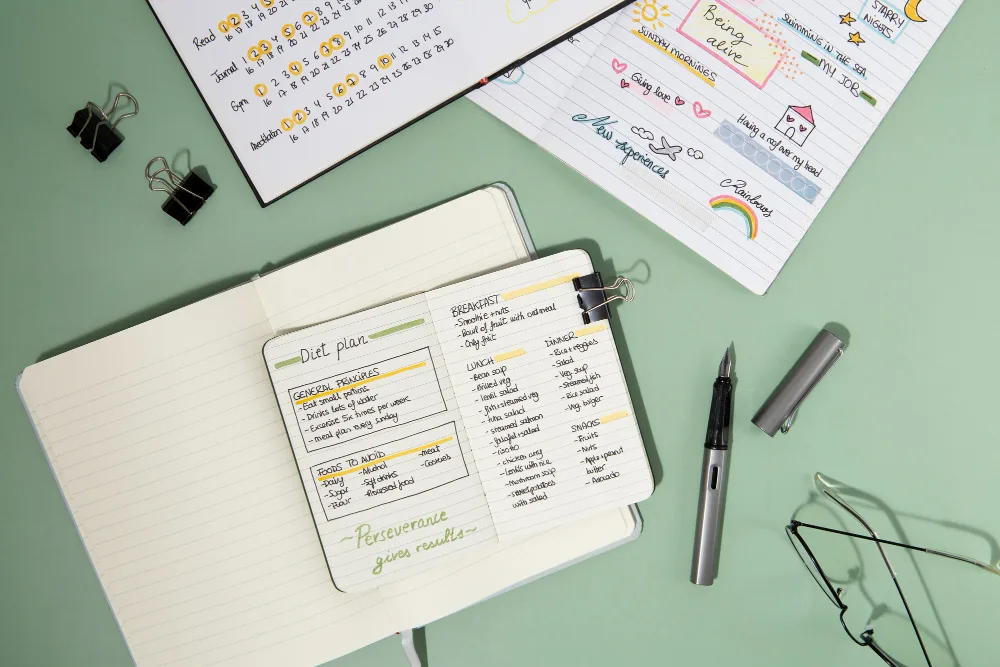Is happiness a skill you can actually learn? Short answer: yes and UK data backs it. According to the Office for National Statistics (ONS), most UK adults report fairly high life satisfaction, but around one in four still experience high levels of anxiety or low well-being. While these figures show room for improvement, research suggests that happiness isn’t just about circumstance; it’s something we can actively work on. The NHS notes that physical activity, such as walking, can improve mood, with studies showing that just 30 minutes of exercise a few times a week significantly boosts happiness.
There’s also hard evidence for simple actions. The NHS notes strong scientific support for physical activity improving health and happier living, while guidance specifically for depression highlights exercise as a mood booster for many people. In short: Small, regular effort beats vague hopes.
And beyond steps and sweat, the brain itself is adaptable. Reviews of mindfulness-based training and gratitude interventions show measurable though modest improvements in wellbeing, exactly what you’d expect if happiness is something you can practise, not merely possess.
The case for “trainable” happiness
Neuroplasticity in clear language
Your brain rewires through use. When you repeat attention, reflection or movement patterns, neural pathways strengthen, the mental version of muscle memory. Contemporary reviews link mindfulness training with improved emotional regulation and structural brain changes related to stress. That’s the lab-backed route from “try this” to “these sticks.”
Real-world interest, not just theory
Your brain rewires through use. When you repeat attention, reflection or movement patterns, neural pathways strengthen, the mental version of muscle memory. Contemporary reviews link mindfulness training with improved emotional regulation and structural brain changes related to stress. That’s the lab-backed route from “try this” to “these sticks.”
Yale’s “Science of Well-Being” course surged because people wanted exactly this: Evidence-led practices to feel and function better. Its lesson plan is built around misconceptions about happiness and habit formation, not magical thinking.
What UK data tells us

The ONS wellbeing dashboard reports national scores for life satisfaction, “how worthwhile” life feels, happiness, and anxiety. Policymakers and charities use these indicators to decide where to intervene and which approaches merit funding. If we can move these scores even slightly through daily behaviours, the cumulative effect at population level is significant.
Exercise is a prime lever. NHS guidance explains that physical activity reduces disease risk and is associated with better mood; targeted advice for depression explicitly recommends exercise as part of self-help. Walking is accessible, free, and scalable, a realistic first habit for most UK adults.
Four evidence-grounded habits that build happier brains
1) Gratitude that isn’t cringe
Meta-analyses show gratitude practices (journals, letters, expressed thanks) yield small but reliable improvements in well-being and mental health. The trick is specificity: Note three concrete things daily (e.g., “The way the bus driver waited an extra beat,” not just “family”).
3-step micro-routine (2–3 minutes):
- Write three “micro-gratitudes” with sensory detail.
- Add why each mattered today.
- Once a week, message one person and tell them one of those details.
2) Movement as a mood reset
You don’t need a marathon. NHS-backed advice makes the broader case for activity; even short walks can lift mood, and broader literature links step counts to lower depression risk. Treat movement like brushing your teeth: Daily, automatic, non-negotiable.
Starter plan (10–20 minutes):
- Walk after lunch or the commute.
- Add a brisk minute every other day.
- Use stairs for one flight you’d usually skip.
3) Mindfulness without the mystique
Mindfulness training helps people notice thoughts and feelings without getting dragged around by them, a practical de-escalation skill. Reviews find improvements in stress and emotion regulation; think of “mental first aid” you carry everywhere.
60-second “box breath” (4-4-4-4):
- Inhale 4 seconds, hold 4, exhale 4, hold 4.
- Repeat 4 cycles before a tricky email, meeting, or commute.
4) Meaning beats mood
Mood is weather; meaning is climate. Volunteering, mentoring, or small acts of service expand the “worthwhileness” dimension that the ONS tracks, one reason service often outlasts short-term dopamine hits. Schedule usefulness, not just pleasure.
Build a weekly plan you’ll actually keep

Is happiness a skill you can actually learn if life is hectic? Yes, if you treat it like any other training block.
Monday–friday (10–15 mins total per day)
- AM: 1 minute of box breathing before opening your phone.
- Midday: 10-minute walk (add brisk intervals on Wed/Fri).
- PM: Write three specific gratitudes.
Weekend (30–60 mins total)
- One hour pencilled for something useful to others (call a family member who needs it, community shift, or helping a neighbour).
- Review your week: What boosted energy, what drained it, and which habit felt easiest to repeat?
Accountability tips
- Habit-pairing: do the journal after brushing teeth.
- Visible cues: leave trainers by the door.
- Social nudge: share your step goal with a mate.
Handling setbacks without the drama
Progress won’t be linear. You’ll miss days, have flat weeks, and second-guess yourself. Here’s how to keep momentum when that happens.
- Normalise dips. Brains and bodies cycle. Keep the habit tiny and repeatable.
- Measure inputs, not moods. You control “Did I walk?” far more than “Do I feel amazing?”
- Restart scripts. “Fell off yesterday, doing 5 minutes today.” That’s winning.
If you’re struggling with persistent low mood or anxiety, self-help isn’t a substitute for care. Speak to your GP and review NHS options, including talking therapies and activity prescriptions, they’re designed to sit alongside these habits, not compete with them.
A simple 7-day starter challenge
Before the midpoint of your week, remind yourself: Is happiness a skill you can actually learn? You’re testing that hypothesis.
- Day 1: Box breathing (4 cycles) + write one micro-gratitude.
- Day 2: 10-minute walk after lunch.
- Day 3: Message thanks to one person from your list.
- Day 4: Add one brisk minute to your walk.
- Day 5: Swap doomscrolling for 5 minutes of mindful observation (no judgement, just notice).
- Day 6: Do one useful act for someone else.
- Day 7: Review and set next week’s tiny targets.
After the midpoint, keep using the phrase to anchor your “why”: Is happiness a skill you can actually learn, yes, and you’re practising it.
In the end
Right before we wrap up, ask yourself again: Is happiness a skill you can actually learn? The evidence says yes. ONS metrics show what we’re aiming to lift; NHS and research-backed habits show how to lift it, gently, consistently, and sustainably.
You won’t eliminate sadness or stress, and you don’t need to. You’re training response, not reality. Start small, stack wins, and let the wiring follow the work.
